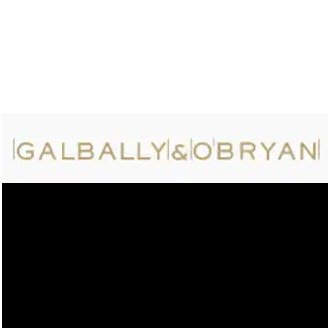Best Drunk Driving Lawyers in Pakenham Upper
Share your needs with us, get contacted by law firms.
Free. Takes 2 min.
List of the best lawyers in Pakenham Upper, Australia
About Drunk Driving Law in Pakenham Upper, Australia
The Drunk Driving Laws, also known as Driving Under Influence (DUI) laws, in Pakenham Upper, Australia, are strict and aim at maintaining public safety. Any person found operating a motor vehicle with a Blood Alcohol Concentration (BAC) of 0.05 or above is deemed to be committing a criminal offence and is likely to face penalties. Consequences can range from fines, temporary license suspension and mandatory alcohol education programs to imprisonment in severe cases.
Why You May Need a Lawyer
Drunk driving charges can lead to severe penalties, and therefore, legal representation is vitally important. A lawyer can help you navigate the local legal system, negotiate with prosecutors, and potentially lessen the charges or sentences. Situations where you may require a lawyer include when you're arrested on suspicion of drunk driving, if someone is injured or property is damaged as a result of your drunk driving, or if you've been charged with repeated drunk driving offences.
Local Laws Overview
In Pakenham Upper, as in the rest of Australia, the legal limit for BAC while driving is 0.05. For individuals holding a probationary or learner's license, the limit is zero. Violating these limits can lead to fines, demerit points on your driving record, license suspension or even imprisonment. Repeat offenders or those involved in accidents causing serious harm or death can face harsher punishment. It is also important to note that the police in Pakenham Upper are empowered to conduct random breath tests to enforce these laws.
Frequently Asked Questions
What is the legal alcohol limit for drivers in Pakenham Upper, Australia?
The legal Blood Alcohol Concentration (BAC) limit for fully licensed drivers in Pakenham Upper, Australia is 0.05. For probationary or learner drivers, the limit is zero.
What happens if I refuse to take a breath test?
Refusing to take a breath test when asked by a police officer is a crime in Pakenham Upper, punishable by the same penalties as drunk driving itself.
Can I reduce my penalties for drunk driving?
A lawyer may be able to help reduce your penalties, depending on the circumstances surrounding your case. For example, they may be able to negotiate a plea deal or argue on your behalf at sentencing.
What kind of lawyer do I need to deal with drunk-driving charges?
You need a criminal defence lawyer, preferably one specialised in drunk-driving cases, to help you navigate the legal process and represent you effectively.
Will a drunk driving charge affect my employment?
It can, particularly if your employment involves driving. Employers may view a DUI as evidence of unreliability and this could potentially lead to job loss or difficulty finding future employment.
Additional Resources
The Australian Government Department of Infrastructure, Transport, Regional Development and Communications website provides comprehensive information on road safety and laws. The Victoria Legal Aid provides free legal services and can be particularly useful for those needing legal advice on drunk-driving charges. Your local community centre may also run programs or offer resources for those dealing with legal issues related to drunk driving.
Next Steps
If you are in need of legal assistance for a drunk driving offence, it is crucial to act promptly. Contact a reputable, local criminal defence attorney who specializes in drunk-driving cases. Keep all court-related documents, copies of police reports and any other related materials safe, as these documents will be required by your lawyer. It is also advisable to refrain from discussing your case with anyone other than your lawyer.
Lawzana helps you find the best lawyers and law firms in Pakenham Upper through a curated and pre-screened list of qualified legal professionals. Our platform offers rankings and detailed profiles of attorneys and law firms, allowing you to compare based on practice areas, including Drunk Driving, experience, and client feedback.
Each profile includes a description of the firm's areas of practice, client reviews, team members and partners, year of establishment, spoken languages, office locations, contact information, social media presence, and any published articles or resources. Most firms on our platform speak English and are experienced in both local and international legal matters.
Get a quote from top-rated law firms in Pakenham Upper, Australia — quickly, securely, and without unnecessary hassle.
Disclaimer:
The information provided on this page is for general informational purposes only and does not constitute legal advice. While we strive to ensure the accuracy and relevance of the content, legal information may change over time, and interpretations of the law can vary. You should always consult with a qualified legal professional for advice specific to your situation.
We disclaim all liability for actions taken or not taken based on the content of this page. If you believe any information is incorrect or outdated, please contact us, and we will review and update it where appropriate.








